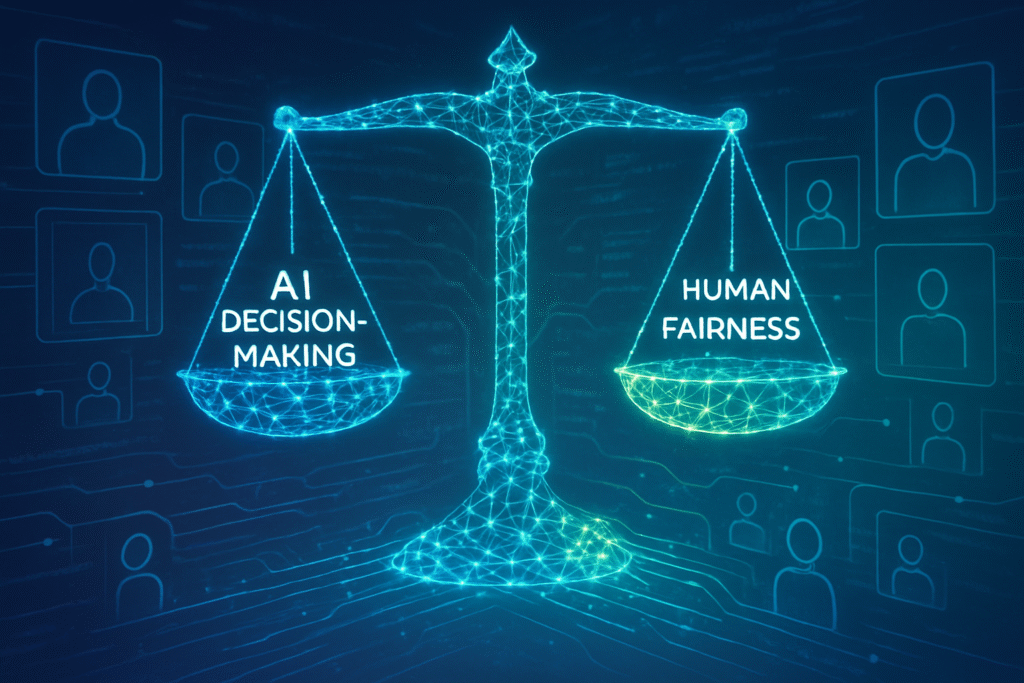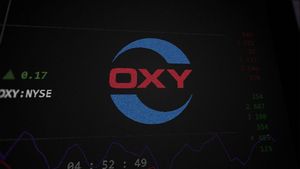
The rapid integration of Artificial Intelligence (AI) into hiring and employment processes has ushered in a new frontier for legal scrutiny. Across the United States, states and localities are proactively enacting and proposing legislation to address the pervasive concern of AI bias and discrimination in the workplace. This emerging trend signifies a critical shift, demanding greater transparency, accountability, and fairness in the application of AI-powered tools for recruitment, promotion, and termination decisions. The immediate significance of these laws is a profound increase in compliance burdens for employers, a heightened focus on algorithmic discrimination, and a push towards more ethical AI development and deployment.
This legislative wave aims to curb the potential for AI systems to perpetuate or even amplify existing societal biases, often unintentionally, through their decision-making algorithms. From New York City's pioneering Local Law 144 to Colorado's comprehensive Anti-Discrimination in AI Law, and Illinois's amendments to its Human Rights Act, a patchwork of regulations is quickly forming. These laws are forcing employers to re-evaluate their AI tools, implement robust risk management strategies, and ensure that human oversight remains paramount in critical employment decisions. The legal landscape is evolving rapidly, creating a complex environment that employers must navigate to avoid significant legal and reputational risks.
The Technical Imperative: Unpacking the Details of AI Bias Legislation
The new wave of AI bias laws introduces specific and detailed technical requirements for employers utilizing AI in their human resources functions. These regulations move beyond general anti-discrimination principles, delving into the mechanics of AI systems and demanding proactive measures to ensure fairness. A central theme is the mandated "bias audit" or "impact assessment," which requires employers to rigorously evaluate their AI tools for discriminatory outcomes.
New York City's Local Law 144, effective July 5, 2023, for instance, requires annual, independent bias audits of Automated Employment Decision Tools (AEDTs). These audits specifically analyze potential disparities in hiring or promotion decisions based on race, gender, and ethnicity. Employers must not only conduct these audits but also make the results publicly available, fostering a new level of transparency. Colorado's Anti-Discrimination in AI Law (ADAI), effective February 1, 2026, extends this concept by requiring annual AI impact assessments for "high-risk" AI tools used in hiring, promotions, or terminations. This law mandates that employers demonstrate "reasonable care" to avoid algorithmic discrimination and implement comprehensive risk management policies. Unlike previous approaches that might address discrimination post-hoc, these laws demand a preventative stance, requiring employers to identify and mitigate biases before they manifest in real-world hiring decisions. This proactive approach distinguishes these new laws from existing anti-discrimination frameworks by placing a direct responsibility on employers to understand and control the inner workings of their AI systems.
Initial reactions from the AI research community and industry experts have been mixed but largely supportive of the intent behind these laws. Many researchers acknowledge the inherent challenges in building truly unbiased AI systems and see these regulations as a necessary step towards more ethical AI development. However, concerns have been raised regarding the practicalities of compliance, especially for smaller businesses, and the potential for a fragmented regulatory environment across different states to create complexity. Experts emphasize the need for standardized methodologies for bias detection and mitigation, as well as clear guidelines for what constitutes a "fair" AI system. The emergence of a "cottage industry" of AI consulting and auditing firms underscores the technical complexity and specialized expertise required to meet these new compliance demands.
Reshaping the AI Industry: Implications for Companies and Startups
The proliferation of state-level AI bias laws is poised to significantly reshape the competitive landscape for AI companies, tech giants, and startups operating in the HR technology space. Companies that develop and deploy AI-powered hiring and employment tools now face a heightened imperative to embed fairness, transparency, and accountability into their product design from the outset.
Companies specializing in AI auditing, bias detection, and ethical AI consulting stand to benefit immensely from this regulatory shift. The demand for independent bias audits, impact assessments, and compliance frameworks will drive growth in these specialized service sectors. Furthermore, AI developers who can demonstrate a proven track record of building and validating unbiased algorithms will gain a significant competitive advantage. This could lead to a "flight to quality," where employers prioritize AI vendors that offer robust compliance features and transparent methodologies. Conversely, companies that fail to adapt quickly to these new regulations risk losing market share, facing legal challenges, and suffering reputational damage. The cost of non-compliance, including potential fines and litigation, will become a significant factor in vendor selection.
This development could also disrupt existing products and services that rely heavily on opaque or potentially biased AI models. Tech giants with extensive AI portfolios will need to invest heavily in retrofitting their existing HR AI tools to meet these new standards, or risk facing regulatory hurdles in key markets. Startups that are agile and can build "compliance-by-design" into their AI solutions from the ground up may find themselves in a strong market position. The emphasis on human oversight and explainability within these laws could also lead to a renewed focus on hybrid AI-human systems, where AI acts as an assistant rather than a sole decision-maker. This paradigm shift could necessitate significant re-engineering of current AI architectures and a re-evaluation of how AI integrates into human workflows.
A Broader Lens: AI Bias Laws in the Evolving AI Landscape
The emergence of US state AI bias laws in hiring and discrimination is a pivotal development within the broader AI landscape, reflecting a growing societal awareness and concern about the ethical implications of advanced AI. These laws signify a maturing of the AI conversation, moving beyond the initial excitement about technological capabilities to a more critical examination of its societal impacts. This trend fits squarely into the global movement towards responsible AI governance, mirroring efforts seen in the European Union's AI Act and other international frameworks.
The impacts of these laws extend beyond the immediate realm of employment. They set a precedent for future regulation of AI in other sensitive sectors, such as lending, healthcare, and criminal justice. The focus on "algorithmic discrimination" highlights a fundamental concern that AI, if left unchecked, can perpetuate and even amplify systemic inequalities. This is a significant concern given the historical data often used to train AI models, which can reflect existing biases. The laws aim to break this cycle by mandating proactive measures to identify and mitigate such biases. Compared to earlier AI milestones, which often celebrated breakthroughs in performance or capability, these laws represent a milestone in the ethical development and deployment of AI, underscoring that technological advancement must be coupled with robust safeguards for human rights and fairness.
Potential concerns include the risk of regulatory fragmentation, where a patchwork of differing state laws could create compliance complexities for national employers. There are also ongoing debates about the precise definition of "bias" in an AI context and the most effective methodologies for its detection and mitigation. Critics also worry that overly stringent regulations could stifle innovation, particularly for smaller startups. However, proponents argue that responsible innovation requires a strong ethical foundation, and these laws provide the necessary guardrails. The broader significance lies in the recognition that AI is not merely a technical tool but a powerful force with profound societal implications, demanding careful oversight and a commitment to equitable outcomes.
The Road Ahead: Future Developments and Expert Predictions
The landscape of AI bias laws is far from settled, with significant near-term and long-term developments expected. In the near term, we anticipate more states and localities to introduce similar legislation, drawing lessons from early adopters like New York City and Colorado. There will likely be an ongoing effort to harmonize some of these disparate regulations, or at least to develop best practices that can be applied across jurisdictions. The federal government may also eventually step in with overarching legislation, although this is likely a longer-term prospect.
On the horizon, we can expect to see the development of more sophisticated AI auditing tools and methodologies. As the demand for independent bias assessments grows, so too will the innovation in this space, leading to more robust and standardized approaches to identifying and mitigating algorithmic bias. There will also be a greater emphasis on "explainable AI" (XAI), where AI systems are designed to provide transparent and understandable reasons for their decisions, rather than operating as "black boxes." This will be crucial for satisfying the transparency requirements of many of the new laws and for building trust in AI systems. Potential applications include AI tools that not only flag potential bias but also suggest ways to correct it, or AI systems that can proactively demonstrate their fairness through simulated scenarios.
Challenges that need to be addressed include the ongoing debate around what constitutes "fairness" in an algorithmic context, as different definitions can lead to different outcomes. The technical complexity of auditing and mitigating bias in highly intricate AI models will also remain a significant hurdle. Experts predict that the next few years will see a significant investment in AI ethics research and the development of new educational programs to train professionals in responsible AI development and deployment. There will also be a growing focus on the ethical sourcing of data used to train AI models, as biased data is a primary driver of algorithmic discrimination. The ultimate goal is to foster an environment where AI can deliver its transformative benefits without exacerbating existing societal inequalities.
A Defining Moment for AI and Employment Law
The emerging trend of US states passing AI bias laws marks a defining moment in the history of Artificial Intelligence and employment law. It signals a clear societal expectation that AI, while powerful and transformative, must be wielded responsibly and ethically, particularly in areas that directly impact individuals' livelihoods. The immediate and profound impact is a recalibration of how employers and AI developers approach the design, deployment, and oversight of AI-powered hiring and employment tools.
The key takeaways from this legislative wave are clear: employers can no longer passively adopt AI solutions without rigorous due diligence; transparency and notification to applicants and employees are becoming mandatory; and proactive bias audits and risk assessments are essential, not optional. This development underscores the principle that ultimate accountability for employment decisions, even those informed by AI, remains with the human employer. The increased litigation risk and the potential for significant fines further solidify the imperative for compliance. This is not merely a technical challenge but a fundamental shift in corporate responsibility regarding AI.
Looking ahead, the long-term impact of these laws will likely be a more mature and ethically grounded AI industry. It will drive innovation in responsible AI development, fostering a new generation of tools that are designed with fairness and transparency at their core. What to watch for in the coming weeks and months includes the continued rollout of new state and local regulations, the evolution of AI auditing standards, and the initial enforcement actions that will provide crucial guidance on interpretation and compliance. This era of AI bias laws is a testament to the fact that as AI grows in capability, so too must our commitment to ensuring its equitable and just application.
This content is intended for informational purposes only and represents analysis of current AI developments.
TokenRing AI delivers enterprise-grade solutions for multi-agent AI workflow orchestration, AI-powered development tools, and seamless remote collaboration platforms.
For more information, visit https://www.tokenring.ai/.






